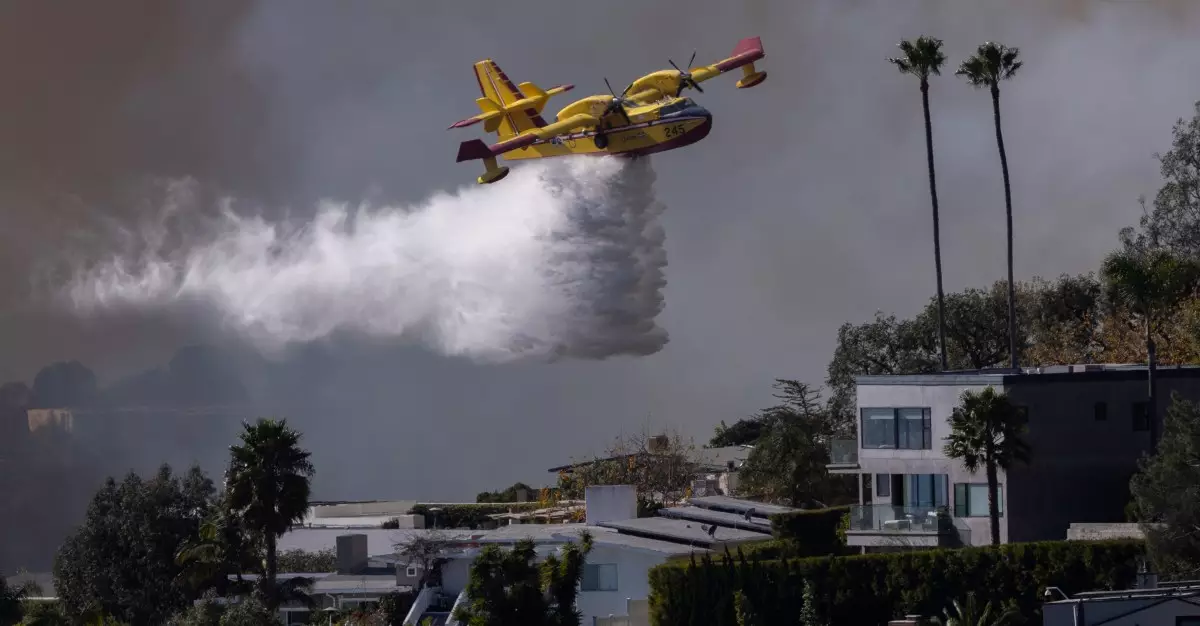In today’s world, drone technology has shifted from being a luxury to a commonplace tool utilized for various purposes, ranging from photography to firefighting. However, with the rise of these devices comes the critical responsibility of adhering to aviation laws and regulations designed to protect public safety. The case of Peter Akemann serves as a stark reminder of the severe consequences of neglecting these regulations, particularly in a sensitive environment like a wildfire zone.
On January 9, 2025, Peter Akemann, a seasoned professional in the gaming industry and an experienced drone pilot, made a grave error that would lead him into the legal spotlight. Launching his DJI Mini 3 Pro drone without adhering to the Federal Aviation Administration’s (FAA) Temporary Flight Restrictions, he attempted to survey damage from the Palisades wildfire. In an ill-fated maneuver, he lost sight of his drone, which subsequently collided with a firefighting aircraft, causing significant damage and ultimately grounding the plane for essential repairs.
This incident was not merely an unfortunate accident; it was a blatant disregard for the established no-fly zones that were put in place to protect both the public and the heroic personnel battling the fire. Akemann’s actions pose significant questions regarding accountability, awareness, and the judgment of seasoned professionals when it comes to operating such technology.
Upon investigating the incident, authorities swiftly traced the drone back to Akemann. The legal repercussions for his actions were imminent. As part of a plea agreement, Akemann has agreed to a substantial financial restitution of approximately $65,000 for the damages incurred and 150 hours of community service, primarily focusing on wildfire relief efforts. This penalty could serve as a significant wake-up call, especially for tech-savvy individuals who might underestimate the seriousness of aviation regulations.
While Akemann is spared a year in jail through this plea, the possibility of further legal complications looms over him. If the US District Court declines to accept his plea agreement, he risks not only incarceration but also hefty fines or additional penalties that could escalate quickly based on the financial impact of his actions.
Peter Akemann is no stranger to the tech landscape, having formerly held prominent roles as the president and chief technologist at Skydance Interactive and as a co-founder of Treyarch, the studio behind popular franchises like Call of Duty and Spider-Man. His high-profile background adds a layer of complexity to the case; many may wonder how a figure of his experience could make such a serious error in judgment.
His recent departure from Skydance raises eyebrows, as some speculate whether personal or professional pressures contributed to the decision to operate his drone recklessly. The rapid deletion of his LinkedIn and social media profiles only adds to the intrigue surrounding this incident, leaving many curious about the implications for Akemann’s career moving forward.
Mitigating Factors: An Argument for Understanding
In light of the situation, Akemann’s attorneys have cited potential mitigating factors that could influence the court’s judgment. They assert that Akemann relied on the geo-fencing capabilities of his DJI drone, which purportedly failed to prevent him from entering restricted airspace. This highlights a broader issue: the technology that drone users depend on can sometimes fail, resulting in serious consequences.
DJI, the manufacturer of Akemann’s drone, has been scrutinized for its geo-fencing policies. The company’s recent modifications have made it easier for pilots to inadvertently enter no-fly zones. It begs the question of whether these technological advancements sufficiently address the inherent risks of drone operation or if they shift some responsibility away from the pilot.
The predicament faced by Peter Akemann underscores the urgent necessity for all drone operators, regardless of expertise, to remain vigilant and informed about aviation regulations. The case not only serves as a cautionary tale for individuals in the tech industry but also advocates for stricter enforcement and potentially a reevaluation of drone technology by manufacturers. As drones become ever more prevalent in society, the need for responsible usage will remain paramount to ensure the safety and well-being of everyone involved, especially in critical situations like battling wildfires.

